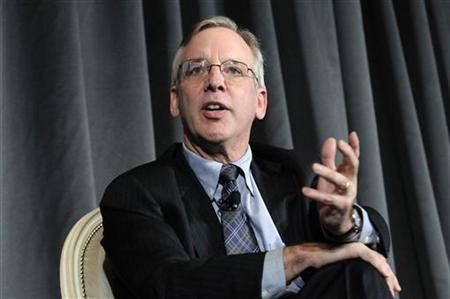The Truth Behind QE3
Opinion

Last week the Federal Reserve, led by Chairman Ben Bernanke, officially announced its third round of quantitative easing referred to as QE3. The programs will give the Fed the ability to buy $40 billion worth of mortgage-backed securities, or MBS, per month. In the statement released with the initiation of the new program, it was obvious the Fed hoped to stimulate the economy while lowering unemployment and boosting the housing market.
This all sounds great on paper, but the issue with the third round of easing is that it’s eerily similar to the last two easing initiatives. Let’s take a look back at how effective QE1 and QE2 were in lowering unemployment, which will ultimately lead to a true rebound in housing.
In late 2010, Bernanke published a now famous editorial that was the basis for QE2. During that time, unemployment was at 9.5 percent; today, nearly two years later, it stands at 8.1 percent. Even though the rate fell by 1.4 percent, it is not overly impressive considering the timeframe and the fact that an economic recovery was already underway.
The real shocker comes when the numbers are broken down.
The number of people employed since QE2 commenced rose by 2.34 million. During the same time, the number of people no longer in the workforce rose by 2.72 million. Simply put, the 2.72 million people who dropped out of the workforce are no longer counted when calculating the unemployment rate. Adding the workers back into the calculation would push the unemployment rate above 11 percent. So you tell me: Did QE2 accomplish its goal to combat an unemployment rate that was too high?
Inflating Assets
Bernanke may not have shouted it from the rooftop, but his true intention for QE2 was to inflate asset prices, specifically a stock market that was struggling at the time. I will give him credit here -- stocks have risen by approximately 40 percent since QE2 began. The day after QE3 was announced, the NASDAQ Composite traded at the highest level in over a decade and the S&P 500 was sitting just 7 percent below a new all-time high.
You can thank Bernanke and all his QE’s for a 401k that is back to decade-ago levels. You can also send Bernanke a thank you card two years from now when inflation is running rampant and you are paying over $5/gallon to fill your tank and the price of bread is soaring.
According to the government and the Fed, inflation is not a concern at this time and remains in line with the target of 2 percent annually. I am the last guy to scream “conspiracy,” however, I do the shopping for my house and I know quite well prices are rising by more than 2 percent. I truly hope I am incorrect about this prediction, but if I am right, inflation will be the cause of the next U.S. recession.
Thank You Cards
If I were consulting President Barack Obama, I would have instructed him to immediately send Bernanke a heartwarming e-card after QE3 was announced. The third attempt at boosting the economy could be just what the president needs to get the economy moving in the right direction before the November election.
My thank you card for Bernanke would have been worded a little differently. First, it would have said thanks for artificially boosting stocks because it sure helps my clients’ accounts. But the cordial tone would end there. I would end with thanks for putting an already questionable economic future in a situation where I have to deal with another severe recession in the years ahead. That was sarcasm if you didn’t catch my tone.
Now that you know the truth behind QE3, you should be upping the amount of exposure you have to stocks, metals, and all assets in your investment accounts. We need to make as much money as possible today before the unlimited third round of quantitative easing comes crashing down on us.
Matt McCall is founder and president of Penn Financial Group, an investment advisory firm that specializes in ETFs and individual portfolio management. Matt is the author of two investment books: "The Swing Trader's Bible: Strategies to Profit from Market Volatility" and "The Next Great Bull Market: How to Pick Winning Stocks and Sectors in the New Global Economy." He is a regular host on the Fox News Channel. His credits include: The Wall Street Journal, CNBC, Business Week, Bloomberg TV, and Investor's Business Daily, to name a few. You can check out his Web site here: www.MatthewDMcCall.com
© Copyright IBTimes 2024. All rights reserved.





















